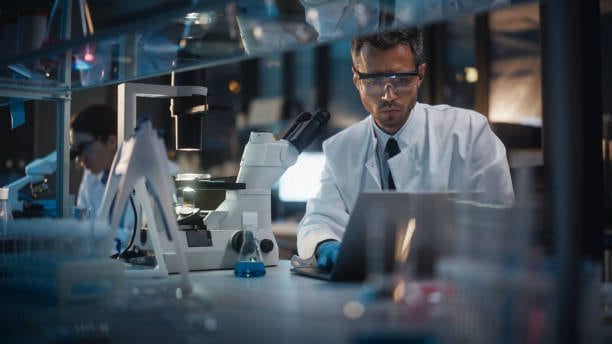Unveiling the Latest Insights on POIS
Explore Groundbreaking Discoveries
Explore the latest scientific discoveries and advancements in the study of Post-Orgasmic Illness Syndrome (POIS). Learn about new theories, research findings, and potential treatments as scientists strive to uncover the mysteries behind this rare and debilitating condition.
Theories Behind POIS: What Science Is Suggesting
One of the main challenges in understanding POIS is its complex nature. The condition involves physical, neurological, and immunological symptoms, making it difficult to pinpoint a singular cause. However, current research has identified several potential explanations for why POIS occurs.
1. Immune Response Theory:
A leading hypothesis in POIS research is the idea that it may be an autoimmune or allergic response to a person’s own semen. In this theory, the body mistakenly recognizes sperm as a foreign invader and launches an immune response, resulting in the array of symptoms typical of POIS. Early research suggested that some men with POIS might produce antibodies that react to semen, leading to inflammation and flu-like symptoms.
In a 2011 study, Dr. Marcel Waldinger, a Dutch scientist who is one of the pioneers in POIS research, conducted desensitization therapy on several men with POIS. His findings indicated that their bodies reacted to their own semen, and gradual exposure to small amounts of semen over time reduced the severity of their symptoms. While this theory is still being explored, it has opened the door to new possibilities for treatment, including immunotherapy.
2. Hormonal Imbalances:
Another area of investigation is the potential role of hormonal imbalances in POIS. Some researchers believe that fluctuations in certain hormones, such as testosterone, cortisol, or prolactin, might contribute to the development of symptoms. In particular, a drop in testosterone after ejaculation may exacerbate symptoms, contributing to fatigue, cognitive difficulties, and emotional disturbances.
Recent studies have suggested that administering hormone replacement therapies, such as testosterone supplements, could help alleviate POIS symptoms for some individuals. However, more research is needed to fully understand how hormones impact POIS and whether hormone-based treatments can be widely applied.
3. Neurological Involvement:
The neurological aspect of POIS is another intriguing area of exploration. Some researchers have proposed that the condition may be linked to an overstimulation of the nervous system following ejaculation, leading to an imbalance in the body’s autonomic functions. This may explain why symptoms like brain fog, headaches, and cognitive impairment are commonly reported.
Early-stage research is investigating whether disruptions in neurotransmitters or brain chemical regulation may play a role in POIS. Identifying such mechanisms could open up opportunities for new treatments targeting neurological pathways.
Current Treatments and What the Future Holds
While there is no cure for POIS yet, several treatments are being explored as researchers learn more about the condition. Some of the approaches currently under investigation include:
-
Immunotherapy: Building on the autoimmune response theory, immunotherapy involves gradually desensitizing the body to semen by introducing small amounts over time. Early trials have shown promise, but the approach is still in its experimental stages.
-
Hormonal Treatments: Hormone replacement therapies, such as testosterone supplementation, are being tested to stabilize hormone levels post-ejaculation, potentially reducing the severity of POIS symptoms.
-
Medications for Immune Response: Antihistamines, anti-inflammatory drugs, and mast cell stabilizers have shown promise in treating symptoms related to the immune response, offering relief for some POIS sufferers.
-
Lifestyle Modifications: Lifestyle changes, including regular exercise, stress management, and dietary adjustments, may also play a role in symptom management. Some patients report that engaging in a healthier lifestyle helps reduce the frequency or severity of POIS episodes.
The Future of POIS Research
The future of POIS research looks promising. With an increasing number of individuals speaking out about their experiences, the condition is slowly gaining the recognition it deserves. Medical institutions worldwide are beginning to explore POIS with greater attention, resulting in a more robust body of research.
Organizations such as POIS support groups, medical researchers, and advocacy networks are working together to raise awareness, fund studies, and push for advancements in diagnosis and treatment. As more data is gathered and research expands, we can expect further breakthroughs in understanding POIS, improving patient care, and developing more effective treatments.
Your Questions Answered
Explore common inquiries about POIS and the latest research findings to enhance your understanding.
What is the focus of the latest POIS research?
Recent studies are exploring the underlying mechanisms of POIS, aiming to identify potential treatment options and improve diagnostic criteria.
How can the new research findings help those with POIS?
The findings provide insights into potential therapies and management strategies, offering hope for better symptom control and quality of life.
Are there any new treatment options available?
While research is ongoing, some promising therapies are being tested. It’s important to consult with healthcare professionals for personalized advice.
How does the research impact the understanding of POIS?
The research enhances our understanding by identifying biological markers and potential causes, paving the way for more targeted treatments.
Can lifestyle changes help manage POIS symptoms?
Yes, lifestyle modifications such as stress management and dietary adjustments can complement medical treatments and improve overall well-being.
Where can I find more information about POIS research?
Our website regularly updates with the latest research findings and expert insights, providing a reliable resource for the POIS community.

